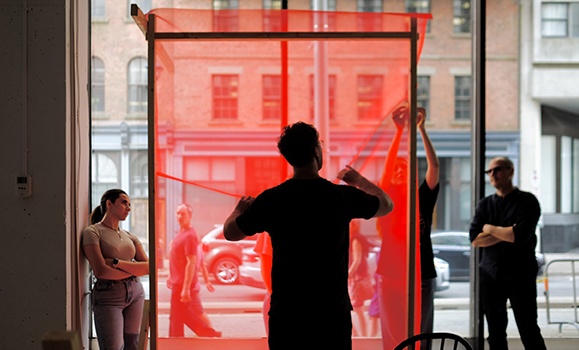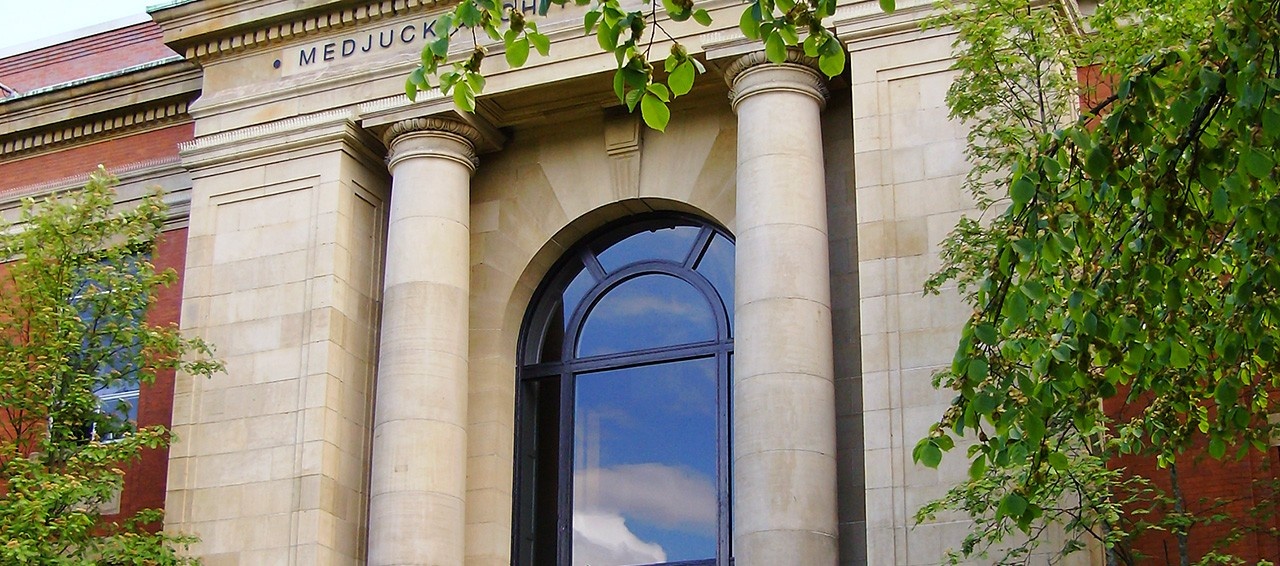News
» Go to news mainInnovation meets real‑world design challenges in School of Architecture Free Labs

Free Labs are where architectural education breaks free from the confines of the classroom, blending theory with practice in an intense, hands-on experience. Each summer, during the last two weeks of July, students in the Bachelor of Environmental Design Studies (BEDS) and Master of Architecture (MArch) programs come together to tackle real-world design challenges in sustainability, net-zero design, and construction material modeling. Led by a diverse team of faculty members, sessional instructors, and industry professionals, these design-build labs push students to experiment, innovate, and collaborate on projects that have a lasting impact on their education and the communities they serve.
"Free Lab is an exciting learning opportunity for architecture students to respond to important tolerances in the built environment,” says Professor Michael Putman. “Whether that be sustainability within materiality, ingenuity within technology, or, in my case, new within old.”
Exploring Dynamic Projects
This year's Free Labs offered students a spectrum of experiences, each providing a unique opportunity to explore different facets of architecture and design. There were 10 Free Labs in total, and they included some of the following highlights:
- In the Woodshop: Craft, Material, Tectonics, and the Art of Making lab, students revisited traditional construction methods, adapting them to contemporary architecture while emphasizing the enduring importance of craft, material selection, and tectonics in hands-on making.
- In the Wicked/Discursive Drawings lab, students dove deep into the complexities of architectural design, tackling challenging issues through discussions, readings, and drawing exercises that honed their critical thinking skills and demonstrated how drawing serves as both a tool for exploration and communication.
- The Community Garden at Dartmouth's Community Fridge location gave students the opportunity to explore the social dimensions of architecture by designing and building spaces that prioritize connection, inclusivity, and well-being, highlighting how the built environment can positively impact and unite communities while fostering a sense of belonging.
- In the Bio-Vault 2 lab, students pushed the boundaries of sustainable design by experimenting with bio-based composites to create low-embodied carbon structures, showcasing the potential of innovative materials to address pressing environmental challenges in architecture.
- One of the more visually striking projects was the SKIN lab (pictured above), where students explored thinness in materiality and spatiality by designing and building architectural forms that challenged conventional approaches to material thickness and space, culminating in a month-long exhibition.
The Lasting Impact of Free Labs
The projects undertaken in Free Labs are more than just academic exercises— they are real-world interventions that have a lasting impact. Whether building a modular prototype of a Sable Island pavilion or creating a community space in Downtown Dartmouth, the work done by students raises awareness about the importance of architecture in shaping our world.
However, the impact of Free Labs goes even further. These projects prepare students for the complexities of professional practice, teaching them to navigate intricate design challenges, collaborate across disciplines, and engage with diverse communities. The skills and experiences gained in Free Labs are invaluable, equipping students with the confidence and creativity needed to address the pressing issues facing the built environment today.
In essence, Free Labs are more than just a component of architectural education—they are a crucible of innovation, where students learn to turn ideas into reality, making a tangible difference in the world around them.
To learn more about the 2024 Free Labs projects, visit the website here.
Recent News
- �鶹��ý Impact Award Winner Recognized for Outstanding Contributions
- Dancing Between the Lines: Paulette Cameron’s Architectural Journey of Women, Space, and Transformation
- Innovation meets real‑world design challenges in School of Architecture Free Labs
- Faculty of Architecture and Planning creates forum for discussing housing strategies for the future
- The Loaded Ladle providing food security for Sexton Campus students
- D'Arcy Jones' exhibition and talk brings community together
- From assistant professor to associate professor with tenure.
- Spring 2023 Convocation Address
